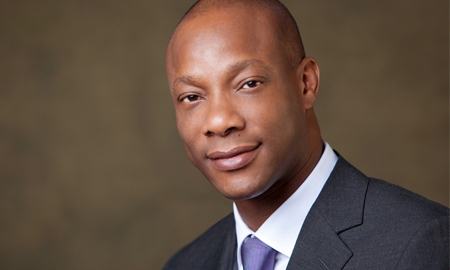As a result of their expansion and internationalisation, many Nigerian banks aim to become global players, with corporate visions in tune with the government’s agenda to make the country one of the world’s top 20 economies. But if Nigeria is to successfully raise its international economic profile, then its banking sector must do likewise.
Diamond Bank is one of a raft of banks determined to highlight the service quality, strengths and competences that can be found in Nigeria’s banking industry that fly in the face of global misconceptions. “The Nigerian banking industry has learnt many lessons, the major one being corporate governance,” says Dr Alex Otti, Group Managing Director and CEO of Diamond Bank. In June 2009, the administration changed at the Central Bank of Nigeria (CBN), and Governor Lamido Sanusi’s team introduced many far-reaching reforms, dispatching examiners from the Nigeria Deposit Insurance Corporation (NDIC) and CBN to every bank in the country. “The CBN took action, which led to the reduction in the number of banks we have today after the mergers and acquisitions that took place. Three banks were taken over by AMCON (Asset Management Corporation Of Nigeria) and they have been recapitalised and are in the process of being sold,” says Dr Otti.
The capital adequacy ratio, which is often used to measure a financial institution’s strength, of Nigeria’s banks is between 15-30%, well above the CBN’s minimum stipulation of 10%. However, image and branding are essential if Nigeria’s banks are to translate their strengths into international success, as both national and international perceptions are vital to attracting clients and banking partners.
“Investing in a Nigerian major bank might actually give you a foothold into Africa because the mother bank will always be looking to expand.” Olusegun Agbaje, MD Guaranty Trust Bank |
In a 2012 report published by the London-based brand valuation consultancy Brand Finance, four of Nigeria’s banks make it into its list of the 500 most valuable world banking brands. First Bank of Nigeria was ranked as the number one bank brand in Nigeria, with its brand valued at $170 million (€135 million). It was closely followed by Guaranty Trust Bank, with a brand value of $169 million. Zenith Bank came third, at $147 million, and United Bank for Africa (UBA) had a brand value of $121 million.
The four banks’ brands are also amongst the world’s top 50 by total brand value by country. South Africa’s top 10 bank brands led the African pack with a combined brand value of $8.2 billion, followed by Nigeria’s four totalling $607 million.
Guaranty Trust Bank’s ranking as a global brand has been earned through a number of firsts in its business, partnerships and corporate social responsibility endeavours. In 2007 it became the first sub-Saharan bank to be listed on the London Stock Exchange.
“We have picked nine countries in which we would like to engage over the next five years. We are hoping that by then we will have a footprint in 12 to 15 African countries,” says Olusegun Agbaje, Group Managing Director and CEO of Guaranty Trust Bank.
So far, the group operates in three geographic regions: Nigeria, Rest of West Africa (Ghana, Gambia, Sierra Leone and Liberia) and Europe (UK and Netherlands).
Skye Bank is also looking into regional expansion. Group Managing Director and CEO Kehinde Durosinmi-Etti comments, “We are currently active in three West African countries: Guinea, Sierra Leone and Gambia. We have focused on English-speaking countries to start with. We are in two such countries and have a foothold in a francophone country. This is important because most of the countries in West Africa are French-speaking, which makes it key to have a presence in order to access this wider market.”
UBA has also made significant strides: Boston Consulting Group has ranked UBA among the top 40 African Challengers – African companies competing and rapidly expanding in the global economy. With the start of operations in Congo DRC and Congo Brazzaville, UBA is now present in 19 African countries besides Nigeria.
Meanwhile, Zenith Bank has been growing its brand internationally in the UK, Ghana, Sierra Leone and The Gambia. It also has representative offices in South Africa and China. “Our aspiration is to continue to expand and make our world-class products and services available to as many markets as possible. We will also ensure that we contribute to the growth of the local economies we enter,” says Godwin Emefiele, Group Managing Director and CEO of Zenith Bank Plc.
Finally, with a presence in 35 countries, 33 of them in Africa, Ecobank can claim to be a truly pan-African operation. Ecobank also has representative offices in Dubai, London and China. “If you want to do business in Africa, there is only one bank that takes you to 33 countries. We have relationship managers based in Paris that market European communities and businesses into Africa,” says Jibril Aku, Managing Director of Ecobank Nigeria, who also has plans for his bank to enter Angola and Mozambique.
0 COMMENTS